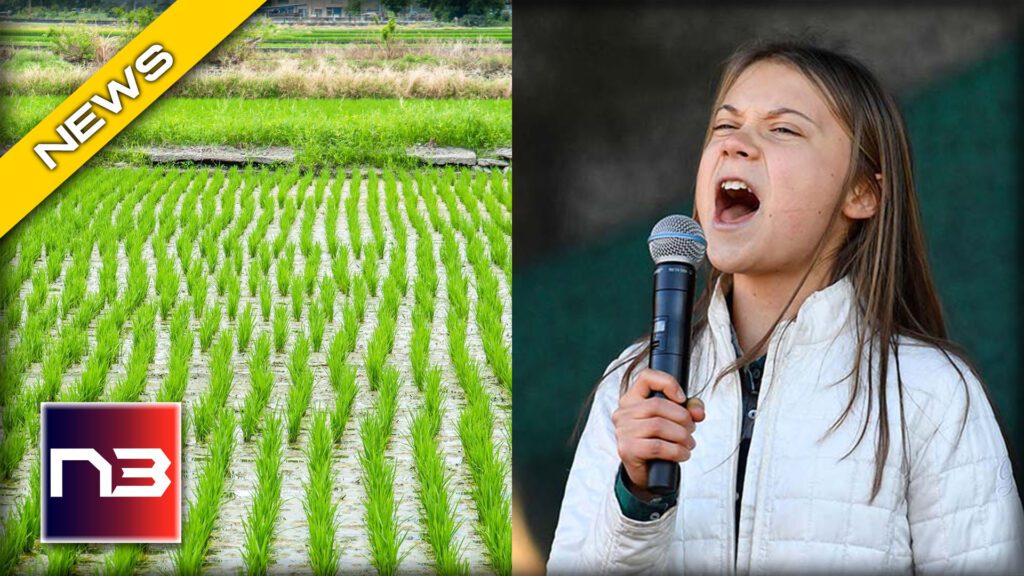The climate activists have gone too far. These so-called “scientists” are targeting rice farming, a “dangerous” practice that they claim produces too much methane.
According to AFP news, flooded rice farms that naturally ferment hay and other plants, are being called a massive environmental threat.
Rice is a food staple that makes up the dominant part of the diet of millions of people around the world. It is an inexpensive, plant-based food full of calories for energy. The food staples vary from place to place, depending on the food sources available. However, rice is one of the most popular and commonly eaten food staples in several parts of the world, particularly in Asia, Latin America, and large parts of Africa. In fact Rice is a major part of over 3.5 billion people’s daily diet.
Despite this, climate change activists, led by questionable scientists, are determined to cause food instability by restricting access to rice. This is just the latest example of their misguided efforts to reduce greenhouse gas emissions by targeting food sources, including beef, calling for people to eat insects, and now rice farming.
Their efforts have already caused major problems in Sri Lanka, where the government implemented a policy to reduce fertilizers as part of their climate change initiatives. This proved to be disastrous, leading to an abrupt ban on the import of chemical fertilizers, causing a significant food crisis. The misguided ban left the agricultural sector hobbled for years and forced the country to rely on international aid.
It is no secret that rice farming provides farmers with a livelihood, and is a source of nutrition for millions of people around the world. A restriction in rice production would have a catastrophic impact on food security, leading to greater levels of malnutrition, hunger and instability in countries where the crop is a primary source of nutrition.
While the origins of rice farming can be traced to India or Southeast Asia, it is now grown in many parts of the world, including Asia, Latin America, Africa, and even South America, where Brazil is the largest producer of this crop. The primary reason why rice farming is so popular is its resilience in harsh climatic conditions. It grows well in waterlogged soils, such as in the floodplains of Asian rivers like the Ganges and Mekong. In fact, deepwater rice, which is adapted to deep flooding, is grown in areas such as Pakistan, Bangladesh, Vietnam, and other neighboring countries.
Rice is not the only food staple that plays a vital role in the diets of millions of people. Other food staples include corn, wheat, sorghum, millet, potatoes, cassava, yams, and taro. Restricting access to any of these staple foods would be catastrophic for millions of people around the world.
The activists’ proposed actions will hurt the people they claim to want to help. Their actions will aggravate the issue of food insecurity in the countries where rice farming is a primary source of nutrition. They will also deprive farmers of their livelihoods and render large numbers of people jobless. This is a classic example of how a good cause can be diluted by misguided efforts to address the problem.
It is natural to be concerned about the environment, but climate change activists need to do a better job of balancing their aspirations with the needs of people around the world. They need to recognize that nature is fragile and that human beings are part of that ecology. They need to remember that sustainable development is about striking a balance between economic growth, social well-being, and environmental protection. Their focus should be on developing innovative solutions that promote development and improve the lives of people around the world while preserving the environment. Any attempt to restrict access to food staples like rice will have negative consequences for millions of people. It is time for climate change activists to focus on driving sustainable development, understanding the needs of populations, and not making rash proposals that will cause more harm than good. We need to act now, before it is too late, to ensure that we have a secure food supply for generations to come.
Let’s continue this conversation, in the comments below.



